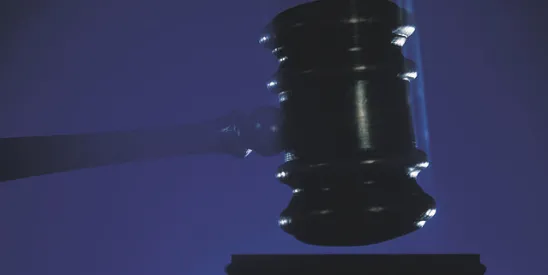The Ninth Circuit recently joined the debate on whether the heightened pleading standard of Fed. R. Civ. P. 9(b) or the more relaxed notice-pleading standard of Fed. R. Civ. P. 8(a) applies to pleading loss causation for a federal securities-law claim. The Ninth Circuit sided with those Circuits holding that Rule 9(b) applies to loss causation as to other elements of a securities-fraud claim. Oregon Pub. Emp. Ret. Fund v. Apollo Group Inc., ___ F.3d ___, 2014 WL 7139634 (9th Cir. Dec. 16, 2014).
 To prove a securities-fraud violation under section 10(b) of the Securities Exchange Act of 1934 and the SEC’s Rule 10b-5, a plaintiff must allege (i) a material misrepresentation or omission, (ii) scienter, (iii) a connection between the alleged misrepresentation or omission and the purchase or sale of a security, (iv) reliance, (v) economic loss, and (vi) loss causation – meaning that the plaintiff’s loss must have been caused by the disclosure of the misrepresented or omitted “truth,” rather than by other, extraneous news. The Supreme Court, in explaining the loss-causation requirement in Dura Pharmaceuticals, Inc. v. Broudo, 544 U.S. 336, 346 (2005), had assumed “at least for argument’s sake” that neither Rule 9(b)’s nor the Private Securities Litigation Reform Act’s (the “PSLRA’s”) stringent pleading requirements applied to loss causation, because the allegations in that case had not satisfied even the laxer Rule 8(a).
To prove a securities-fraud violation under section 10(b) of the Securities Exchange Act of 1934 and the SEC’s Rule 10b-5, a plaintiff must allege (i) a material misrepresentation or omission, (ii) scienter, (iii) a connection between the alleged misrepresentation or omission and the purchase or sale of a security, (iv) reliance, (v) economic loss, and (vi) loss causation – meaning that the plaintiff’s loss must have been caused by the disclosure of the misrepresented or omitted “truth,” rather than by other, extraneous news. The Supreme Court, in explaining the loss-causation requirement in Dura Pharmaceuticals, Inc. v. Broudo, 544 U.S. 336, 346 (2005), had assumed “at least for argument’s sake” that neither Rule 9(b)’s nor the Private Securities Litigation Reform Act’s (the “PSLRA’s”) stringent pleading requirements applied to loss causation, because the allegations in that case had not satisfied even the laxer Rule 8(a).
Since Dura, the Circuits have split on whether Rule 9(b) or Rule 8(a) applies. According to the Ninth Circuit, the Fourth, Seventh, and Second Circuits have applied heightened standards; the Fifth and the Third Circuits have not.
The Ninth Circuit has now held that “Rule 9(b) applies to all elements of a securities fraud action, including loss causation.” 2014 WL 7139634, at *4. The court reached its conclusion for three reasons: (i) securities-fraud law derives from common law, and Rule 9(b) applies “to all circumstances of common-law fraud”; (ii) loss causation “is part of the ‘circumstances’ constituting fraud” and thus falls within Rule 9(b)’s literal language; and (iii) “our approach creates a consistent standard through which to assess pleadings in 10(b) actions, rather than the piecemeal standard adopted by some courts.” Id.
Accordingly, securities complaints filed in the Ninth Circuit must now satisfy the heightened pleading standards of Rule 9(b) (and the PSLRA) for all elements of the cause of action, including loss causation.




 />i
/>i
